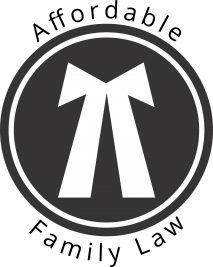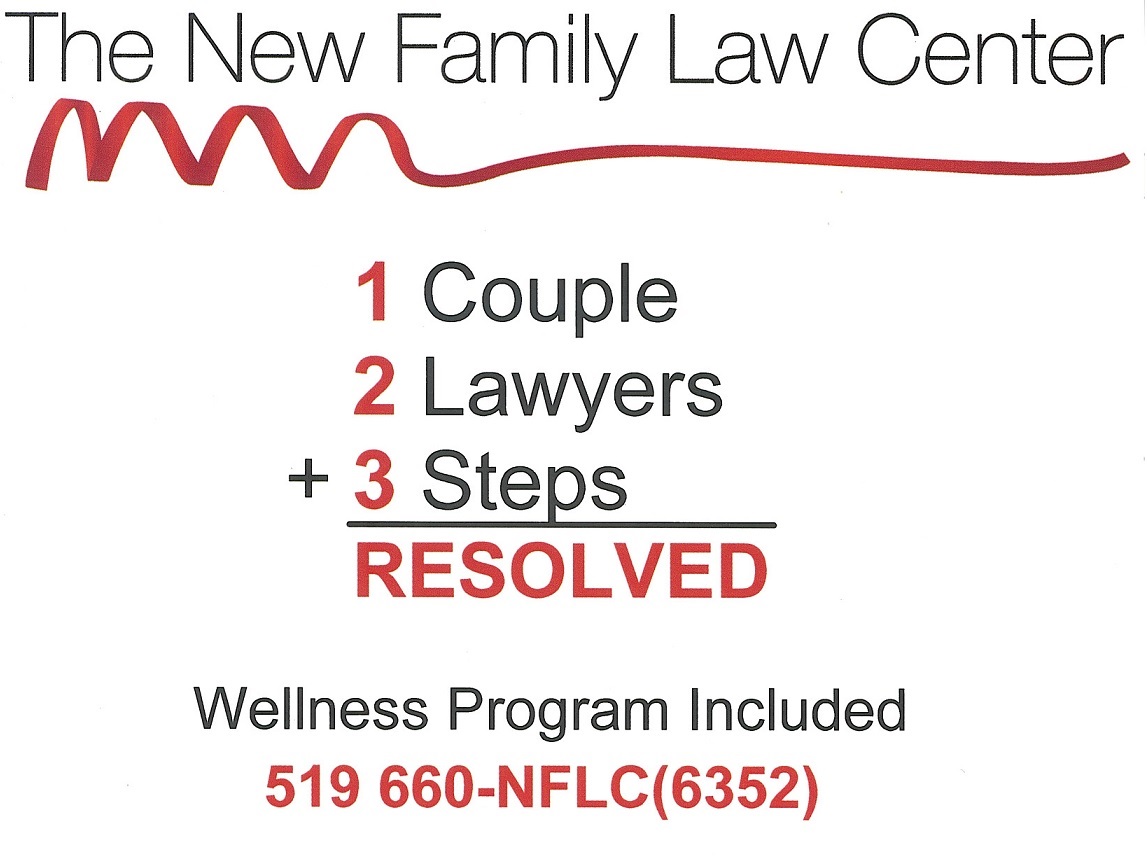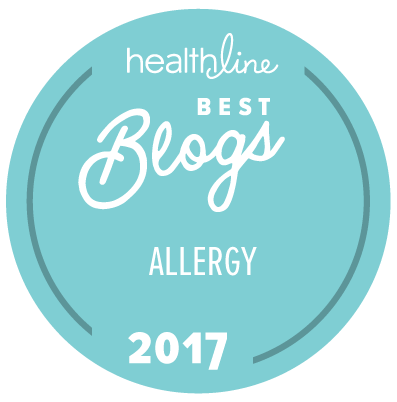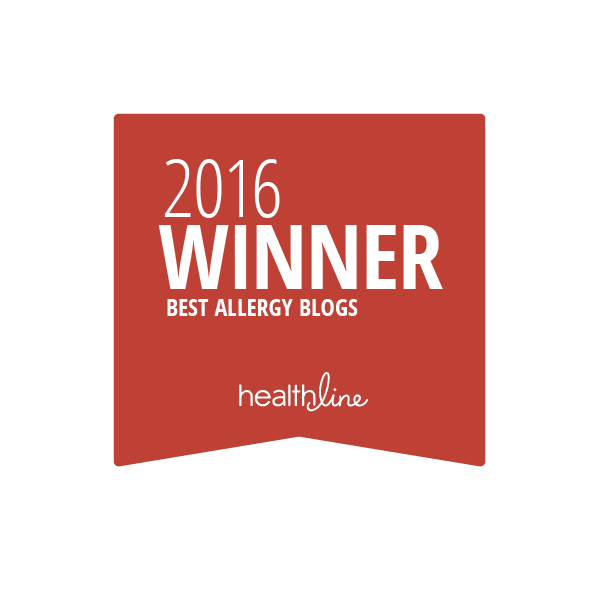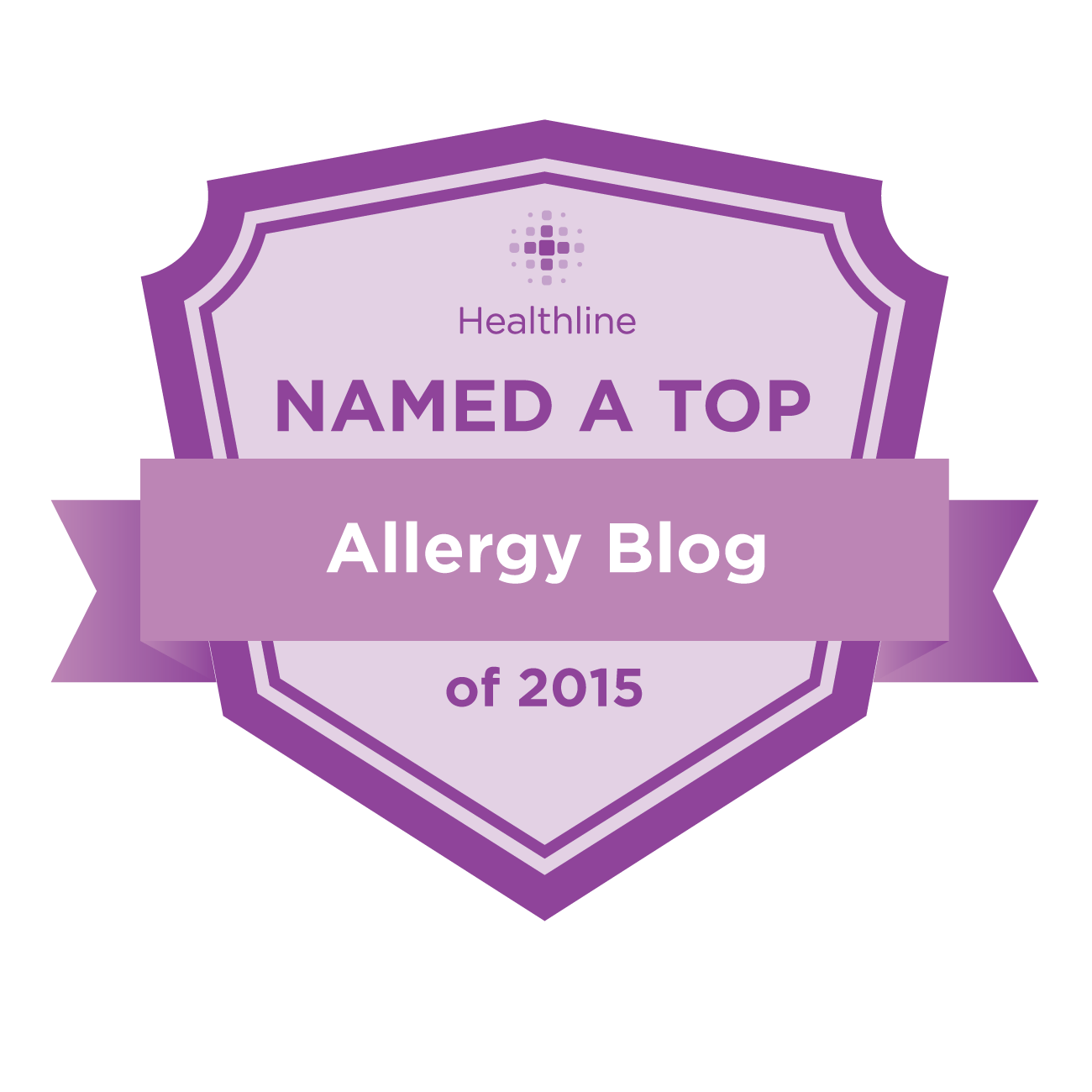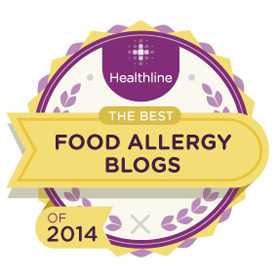I had the pleasure of listening to Laurie Harada, Executive Director of Anaphylaxis Canada, speak about raising a confident child with food allergies at the Pfizer EpiPen Blogger Summit in Toronto last month. Her comments about getting Dads more involved were very interesting to me, so I interviewed Laurie on the topic below.
Elizabeth: At the EpiPen Roundtable Blogger Summit earlier this month, you spoke about how to develop food allergy confidence in children. I was struck by the second point you made, which was to get dads more involved. You suggested that women carry more of the anxiety, and need to get their partners more involved.
Laurie Harada: This is my view based on both personal experience and also what I’ve observed professionally, through my interactions with families over the years, through a review of many quality of life (QoL) studies and in speaking with some researchers.
It’s overwhelmingly mothers who respond to the QoL surveys, attend allergy conferences, and become members of allergy associations. Often, it’s moms who take the kids to the physician, learn about label reading first, and take the lead educating others.
I think this is not a unique situation – it is part of an overall societal trend where women still tend to take on more than their partners, when it comes to household management and attending medical and school appointments, etc.
But it’s a paradigm that needs to shift, especially when families are dealing with a child’s health condition. And to do this, we have to be mindful of what we’re doing as parents.
Sometimes women (like me) tend to take over, and do not ask their spouse for help. We take control.
I thought about this when my son was young and I realized that I had been doing most of the work (going to appointments, label reading, educating). I was getting maxed out taking on the brunt of the workload. I realized that my son would be at higher risk if my spouse did not learn for himself how to protect him.
It’s critical that both parents share the responsibility for learning, teaching their child how to stay safe, and educating others, as food comes into play in all aspects of our lives. If Mom is always the “keeper of information” this can become a burden as she has to educate everyone else. My anxiety level certainly came down as my husband shared more in the responsibility (label reading, careful food preparation, talking to others) and as our son learned to do more things for himself.
Also, I think men and women can balance each other out. If one tends to be more anxious than the other, or one is better at communicating – they can complement and support each other. We also have different perspectives on situations, which is helpful. I used to write long-winded letters for the school and my husband would pare them down to a more succinct version, one which others would read and understand.
Finally, life can throw some awful curve balls with separation and divorce, an unexpected major illness or worse, death. It’s critical that Mom and Dad can each provide the same guidance and rules that a child can follow.
Elizabeth: You had a great slide that included suggestions for what a dad’s involvement could look like. Could you please share that image with me and give me a list of those suggestions?
Laurie: See above comments for general comments. Specific suggestions would be:
• Make time to attend your child’s medical appointments. Ask questions. Learn as much as you can and help your partner educate others.
• Learn for yourself how to read a food label and give an auto-injector.
• Meet school staff with your partner.
Both Mom and Dad should be a role model for their child.
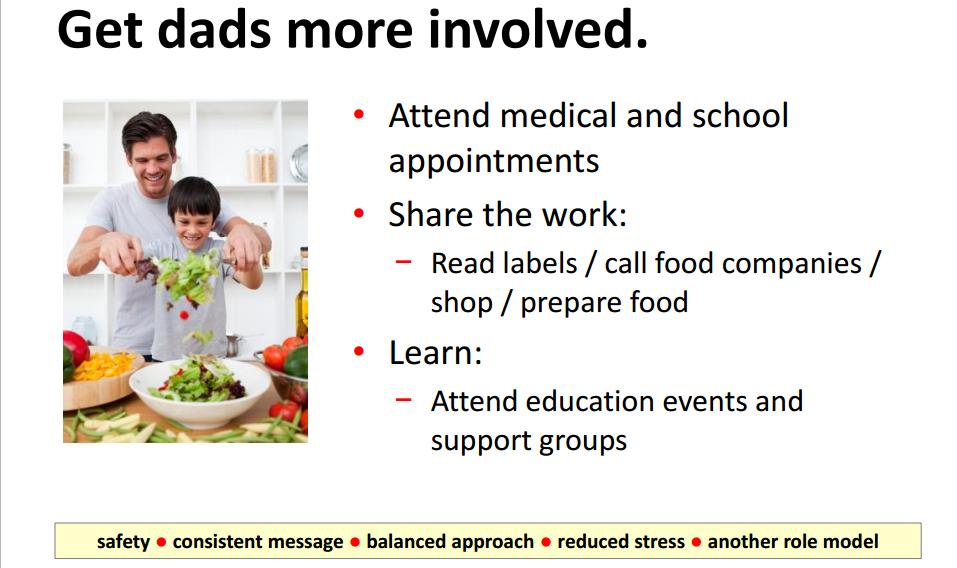
Elizabeth: Finally, by having both spouses involved, how does this enhance the child’s experience of living confidently with food allergies? For example would consistent messaging from both parents be helpful?
Laurie: Absolutely. See comments above.
Children need to feel confident and safe with either parent. They need to be able to trust both. While Mom and Dad may have different parenting styles, they have to guide the child with the same allergy rules. It’s confusing to a child to be given conflicting information, for example, if one parent says it’s OK to eat food with a “may contain” warning and the other does not. Or, if one insists the child have his auto-injector with him at all times, but the other parent is more lax and does not follow this rule.
This will be especially important if the child has four adults in his life with each parent having a new partner. All four need to follow the same allergy rules.
To visit Anaphylaxis Canada’s website, go to http://www.anaphylaxis.ca/
